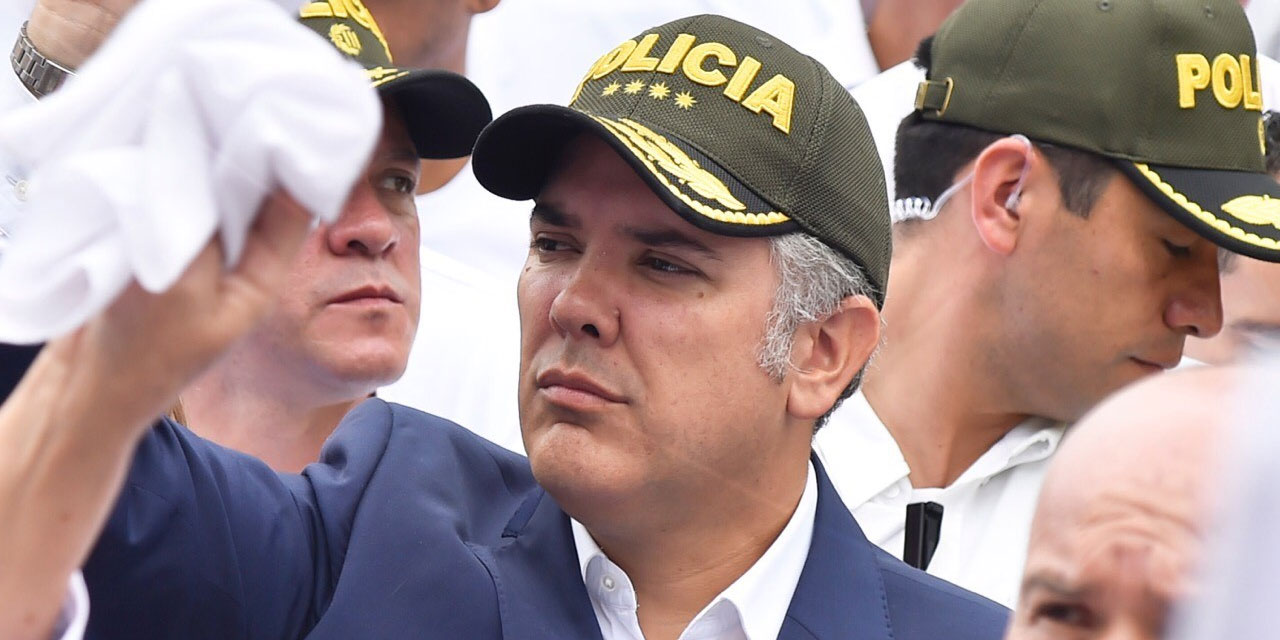If either Colombia’s government or ELN rebels decide to formally end peace negotiations, the guarantor countries of the talks have two weeks to make sure guerrilla leaders are reunited with their troops.
These are the protocols agreed by the Colombian government and the guerrilla group in 2016, before the talks formally kicked off in Ecuador and subsequently moved to Cuba.
President Ivan Duque is currently trying to evade this obligation by not formally ending the peace talks. Instead, he asked Cuba, the latest host country for the talks, to arrest and extradite the 10 rebel leaders on the island.
The ELN, however, can also trigger this protocol that was agreed with former President Juan Manuel Santos and guarantor countries Cuba, Chile, Venezuela and Norway.
Duque cornered
The ELN rebels have successfully cornered Duque, who has defied public opinion and has refused to resume the talks since he took office last year and is now confronted with the devastating consequences.
If the ELN trigger the protocol and the president insists on refusing to acknowledge his obligations as head of state, he would violate the international agreements made ahead of the talks.
The consequences of such action are impossible to foresee.
In Colombia, the government is notorious for failing to keep its word, but failing to meet obligations on an international level is a whole different ballgame.
Not only could Colombia’s reputation suffer damage, foreign nations would think twice before supporting future peace efforts. No country wants to risk suffering political damage for an internal armed conflict in a country that is not theirs.
The state represented by Duque has been condemned for gross human rights violations and has been under pressure from the International Criminal Court to try military commanders for the killing of thousands of civilians.
The United Nations, which has monitored a peace process with demobilized FARC guerrillas since 2016, has witnessed the government’s chronic failures to execute the peace deal with the FARC, which is now a political party.
Government paints a more convenient picture
Domestically, the Colombian government is trying to paint a less chaotic picture of reality in an apparent attempt to conceal the crisis it is in.
In a press conference on Monday, Foreign Minister Carlos Holmes Trujillo implied Cuba is under international pressure to arrest and extradite the ELN guerrillas, but there is no indication this is the case.
According to Interpol, no country is obligated to arrest or extradite suspects wanted by another country.
The United Nations urged member states to help Colombia bring those responsible for the attack to justice, but contrary to the government’s claims, there is no indication any of the peace negotiators would be involved.
No foreign correspondent attended the press conference; it was announced only 15 minutes before it began and journalists who arrived late were allegedly not able to enter.
Mustering support for war; harder than you think
According to multiple polls and until last week’s terror attack, the majority of the Colombian people have consistently been in favor of peace talks with the ELN and disapprove of Duque.
The president has been trying to muster public support to end the peace talks, but there is no indication he is successful.
Duque is widely unpopular and many Colombians refused to take part in government-promoted marches “against terrorism” on Sunday, because they “won’t march with [former President Alvaro] Uribe,” Duque’s war-mongering political patron.
Meanwhile, the country is in crisis. Many, especially in the countryside, fear a violent response from the military and far-right groups that have been systematically assassinating social leaders since the 2016 peace deal.
Support for Duque, who had no significant executive experience until his election, could plummet further.


